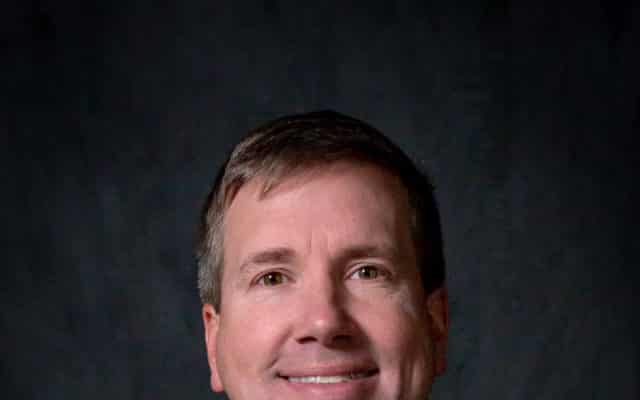
“As a teacher, I believe that mathematics is fun and should be presented as such. I try to strike a balance between the rigorous nature of mathematics and its applicability.”— Samuel Webster
Faculty Information
Additional Faculty Information for Samuel Webster
Education
B.S., Mathematics, Villanova University
Ph.D., Applied Mathematics, University of Maryland, Baltimore County
Awards
Emily Daugherty Award for Teaching Excellence
Publications
Matthais K. Gobbert, Samuel G. Webster, and Timothy S. Cale. “A Galerkin Method for the Simulation of the Transient 2-D/2-D and 3-D/3-D Linear Boltzmann Equation.” Journal of Scientific Computing.
Samuel G. Webster, Matthias K. Gobbert, and Timothy S. Cale. “Transient 3-D/3-D Transport and Reactant-Wafer Interactions: Adsorption and Desorption,” P. Timans, E. Gusev, F. Roozeboom, M. Ozturk, and D. L. Kwong, editors, Rapid Thermal and Other Short-Time Processing Technologies III, The Electrochemical Society Proceedings Series.
Samuel G. Webster, Matthias K. Gobbert, Jean-Fran¸cois Remacle, and Timothy S. Cale. “Parallel Numerical Solution of the Boltzmann Equation for Atomic Layer Deposition” Burkhard Monien and Rainer Feldmann, editors, Euro-Par 2002 Parallel Processing, Lecture Notes in Computer Science, vol. 2400, Springer-Verlag.
Biography
I have always enjoyed computation, but my love of mathematics really began in high school, when I had an excellent calculus teacher who made the subject come alive. Now, the deductive nature of mathematics is what appeals most to me.
As a teacher, I believe that mathematics is fun and should be presented as such. I try to strike a balance between the rigorous nature of mathematics and its applicability.
In addition to my interest in mathematics, I firmly believe in the importance of a liberal arts education. I have been teaching at Hillsdale since 2004 and believe that Hillsdale College provides an excellent, traditional liberal arts experience.
The purpose of the education offered here is to order the mind. A broad-based liberal arts education provides one with the capacity to be a productive member of society; it provides the opportunity to know and appreciate the contributions of history’s great thinkers.